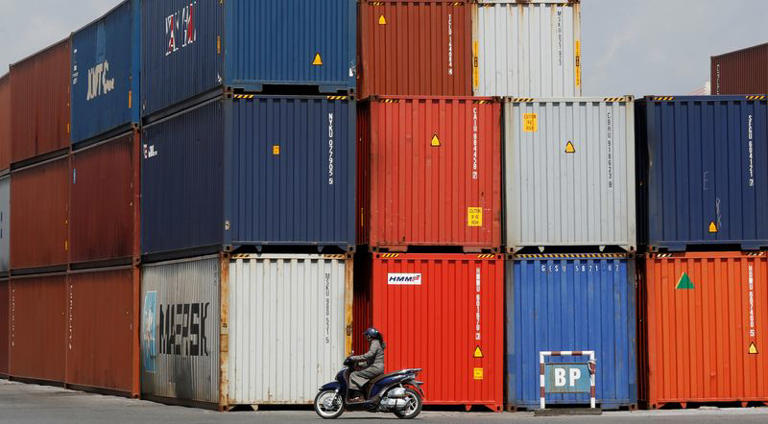The U.S. Commerce Department’s recent announcement to continue classifying Vietnam as a non-market economy has sparked disappointment and controversy, both in Hanoi and among international observers. This decision reflects broader issues surrounding trade policies and geopolitical strategies, particularly in the context of U.S.-China relations.
Understanding the Non-Market Economy Status
Vietnam’s longstanding desire for an upgrade to market economy status stems from the economic advantages it would bring. The non-market economy designation subjects Vietnamese exports to higher anti-dumping duties, which are designed to protect U.S. industries from what are perceived as unfair trade practices. These duties are calculated based on the premise that prices in non-market economies are heavily influenced by the state rather than market forces.
Currently, only 12 countries, including major economies like China, Russia, North Korea, and Azerbaijan, are classified as non-market economies by the U.S. This designation affects how trade disputes and anti-dumping measures are handled, with significant implications for Vietnam’s export sectors, including textiles, steel, and seafood.
Vietnam’s Reaction and Strategic Importance
Vietnam has expressed profound disappointment with the Commerce Department’s decision. The Ministry of Industry and Trade of Vietnam argued that despite substantial economic reforms aimed at liberalizing the economy, the country’s current classification does not reflect its progress. These reforms include efforts to improve market mechanisms and reduce state intervention in various sectors.
Vietnam views this reclassification as vital for its economic development and its strategic positioning in global supply chains. The country has been positioning itself as a viable alternative to China for manufacturing and export activities, particularly in light of ongoing U.S.-China trade tensions. The non-market economy status complicates this positioning, as it maintains higher trade barriers that can deter foreign investment and complicate trade relationships.
Opposition to the Upgrade
The decision to maintain Vietnam’s non-market economy status has been supported by certain U.S. industries and political figures who argue that Vietnam has not made sufficient progress in transitioning to a market-driven economy. Critics point to the continued influence of the Vietnamese Communist Party over economic decisions and the country’s role as a hub for Chinese firms looking to evade U.S. tariffs.
For instance, U.S. steelmakers, Gulf Coast shrimpers, and honey farmers have expressed concerns that changing Vietnam’s status could negatively impact their industries. They argue that Vietnam’s economic structure still involves significant state intervention and planned economy elements, which they believe justifies the continued application of higher anti-dumping duties.
Political and Diplomatic Implications
The timing of the decision is particularly sensitive. With the U.S. presidential election approaching, the Commerce Department’s decision could have implications for U.S.-Vietnam relations. The Biden administration has worked to enhance ties with Vietnam, seeing it as a strategic partner in counterbalancing China’s growing influence in the Indo-Pacific region. President Biden’s visit to Hanoi last year, which elevated the bilateral relationship to a comprehensive strategic partnership, highlighted the importance the U.S. places on strengthening ties with Vietnam.
U.S. Treasury Secretary Janet Yellen’s promotion of Vietnam as a “friend-shoring” destination, aimed at shifting U.S. supply chains away from China, further underscores the strategic calculus at play. The decision to maintain Vietnam’s non-market economy status seems to contrast with these broader diplomatic and economic goals.
Analysts’ Perspectives and Future Considerations
Several analysts have critiqued the Commerce Department’s decision. Edmund Malesky, a political economy professor, and Murray Hiebert from the Center for Strategic and International Studies have suggested that the decision could strain U.S.-Vietnam relations and contradict the broader strategic objectives of the U.S. administration. Hosuk Lee-Makiyama of the European Centre for International Political Economy and Nazak Nikakhtar, a former Commerce Department official, have also criticized the decision. They argue that it reflects outdated assessments of Vietnam’s economic progress and could have detrimental effects on trade relations.
Vietnamese economist Claudia Sahm, who created the Sahm Rule for predicting recessions, has pointed out that dramatic shifts in the labor market, including changes in labor supply due to immigration, might skew the data used to assess economic conditions. Sahm’s insights suggest that the decision may not fully account for the complex economic realities in Vietnam.
Conclusion
The U.S. Commerce Department’s decision to retain Vietnam’s non-market economy status underscores the complexities at the intersection of trade policy and international relations. While it reflects ongoing concerns about state influence and economic distortions, it also highlights the strategic importance of Vietnam in the context of U.S.-China competition. As Vietnam continues to seek greater economic recognition, this decision will likely continue to shape the dynamics of U.S.-Vietnam trade relations and broader geopolitical strategies.
